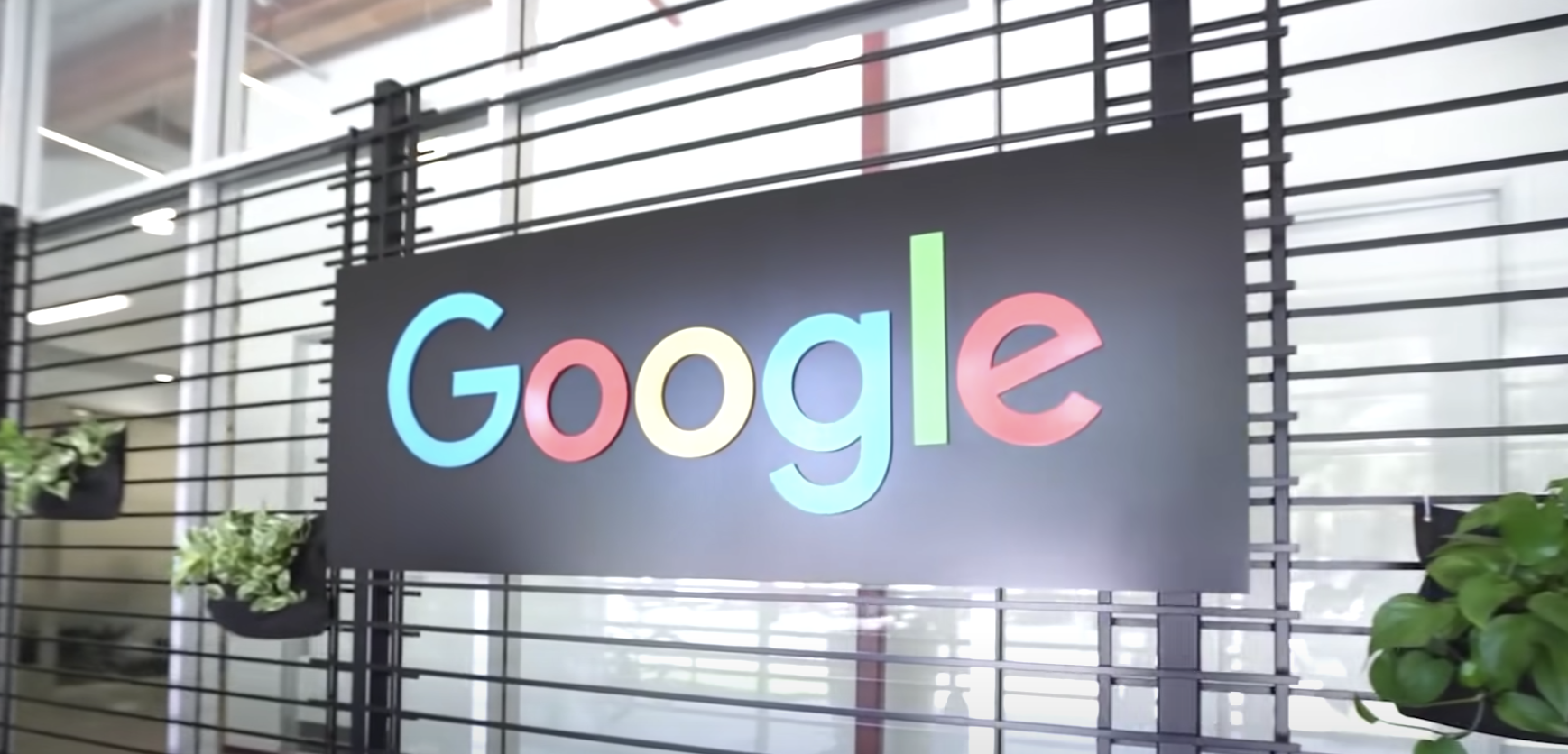U.S. Government To Challenge Google's Monopoly On Online Advertising

Table of Contents
Google's Dominance in Online Advertising
Google's dominance in the online advertising market is undeniable. Its vast portfolio of products, including AdWords (now Google Ads), AdSense, and its programmatic advertising platforms, controls a significant portion of the global online advertising revenue. This near-monopoly position raises serious concerns about fair competition and the potential for anti-competitive behavior.
-
Market Share: Google holds an estimated 30-40% share of the global online advertising market, with even higher percentages in specific segments like search advertising and display advertising. These figures vary depending on the source and year, but consistently show Google's overwhelming presence. This market share allows Google to set prices, control ad placement, and dictate the terms of service for many businesses relying on online advertising.
-
Impact on Smaller Competitors: Google's dominance creates significant challenges for smaller online advertising platforms and businesses. The sheer scale of Google's resources and market reach makes it difficult for smaller players to compete effectively. Many smaller companies find it nearly impossible to gain a foothold in a market so heavily controlled by a single entity, impacting innovation and choice for advertisers.
-
Strategic Acquisitions: Google's acquisition of DoubleClick in 2007 and other smaller ad tech companies significantly bolstered its already substantial market position. These acquisitions effectively eliminated potential competitors and consolidated Google's control over various aspects of the online advertising ecosystem. This consolidation of market power is a central point of contention in the upcoming lawsuit.
-
Anti-Competitive Practices: Allegations of anti-competitive practices include favoring Google's own products in search results and using its vast data collection capabilities to gain an unfair advantage over competitors. This allows Google to effectively leverage its data to better target ads, and provide more comprehensive data-driven advertising strategies than its competitors.
The Antitrust Case Against Google
The U.S. government's lawsuit against Google will likely center on violations of the Sherman Act and the Clayton Act, which prohibit monopolies and anti-competitive practices. The government will argue that Google’s actions have stifled competition, harmed consumers, and ultimately reduced innovation within the online advertising industry.
-
Antitrust Law Violations: The Sherman Act prohibits contracts, combinations, and conspiracies that restrain trade, while the Clayton Act targets mergers and acquisitions that substantially lessen competition. The government's case will likely focus on Google's alleged abuse of its dominant market position and anti-competitive practices.
-
Government's Argument: The government's argument will revolve around Google's alleged monopolistic practices, such as self-preferencing its own products in search results and restricting competitors' access to valuable data. They will contend these actions have created an unlevel playing field, stifling innovation and harming consumers by limiting choices and potentially driving up prices.
-
Evidence Presented: The government is expected to present a substantial amount of evidence, including internal Google documents, market data, and expert testimony, to support its claims. This evidence will likely detail Google's market share, its strategic acquisitions, and its alleged anti-competitive conduct.
-
Potential Penalties: If found guilty, Google faces significant penalties, including substantial fines, structural remedies (like forced divestitures of certain assets), and behavioral remedies (like changes to its business practices). These penalties could significantly impact Google's business model and reshape the online advertising landscape.
Potential Impacts of the Lawsuit on the Online Advertising Ecosystem
The outcome of this lawsuit will have far-reaching consequences for the entire online advertising ecosystem. The impact will be felt by businesses, consumers, and the industry as a whole.
-
Increased Competition: A successful lawsuit could lead to increased competition in the online advertising market, fostering innovation and potentially lowering advertising costs for businesses. This increased competition could create a more diverse and dynamic digital marketplace.
-
Impact on Advertising Costs: Reduced market dominance could lead to lower advertising costs for businesses, particularly small and medium-sized enterprises (SMEs) who struggle to compete with Google's significant resources. However, it's also possible that increased competition could cause some fluctuations in pricing before a new equilibrium is found.
-
Consumer Privacy and Data Protection: The lawsuit could also lead to increased scrutiny of Google's data collection practices, potentially resulting in stricter regulations and improved consumer privacy protections. This could impact the effectiveness of targeted advertising, requiring a shift towards more privacy-centric approaches.
-
Innovation in Online Advertising: Increased competition spurred by the lawsuit could potentially drive innovation in the online advertising sector. This could lead to the development of new technologies, advertising formats, and business models.
Alternatives to Google's Online Advertising Platforms
Businesses looking to diversify their online advertising strategies and reduce their reliance on Google can explore several alternative platforms.
-
Major Competitors: Several significant competitors to Google in the online advertising market exist, including Meta (Facebook/Instagram ads), Microsoft Advertising (Bing Ads), Amazon Advertising, and various other programmatic advertising platforms. Each offers unique strengths and weaknesses.
-
Strengths and Weaknesses: Meta offers strong reach across its platforms, particularly for social media marketing. Microsoft Advertising provides a strong alternative for search advertising on the Bing network. Amazon Advertising offers access to a large e-commerce audience. Programmatic advertising platforms offer targeted ad placements across multiple websites and apps.
-
Transitioning Away from Google Ads: Transitioning away from Google Ads requires careful planning and execution. Businesses should analyze their current advertising strategies, evaluate the strengths of different platforms, and develop a diversified approach.
-
Diversification for a Robust Strategy: A diversified online advertising strategy is crucial for resilience and future-proofing. Relying solely on a single platform carries significant risk; diversifying across multiple platforms mitigates this risk and allows for greater flexibility.
Conclusion
The U.S. government's challenge to Google's alleged monopoly on online advertising marks a pivotal moment for the digital economy. The outcome of this case will have profound and far-reaching consequences, potentially reshaping the competitive landscape and influencing how businesses and consumers interact with online advertising for years to come. The case underscores the critical need for ongoing scrutiny of powerful tech companies and their impact on free and fair markets.
Call to Action: Stay updated on the developments in this landmark antitrust case. Understanding the evolving dynamics of online advertising is vital for businesses of all sizes. Continue to follow our updates and analysis of the government's challenge to Google’s dominance in the online advertising market.

Featured Posts
-
 Harry Claims King Charles Wont Speak To Him Over Security Dispute
May 05, 2025
Harry Claims King Charles Wont Speak To Him Over Security Dispute
May 05, 2025 -
 Will Singapore Voters Break The Paps Monopoly
May 05, 2025
Will Singapore Voters Break The Paps Monopoly
May 05, 2025 -
 Marvels Quality Control Addressing Criticisms Of Its Films And Series
May 05, 2025
Marvels Quality Control Addressing Criticisms Of Its Films And Series
May 05, 2025 -
 New Parent Max Verstappen Ready For Miami Gp
May 05, 2025
New Parent Max Verstappen Ready For Miami Gp
May 05, 2025 -
 Ufc 314 Updated Fight Card After Prates Neal Cancellation
May 05, 2025
Ufc 314 Updated Fight Card After Prates Neal Cancellation
May 05, 2025
Latest Posts
-
 Dope Girls Cocaine Electronica And Glamour Redefine Wwi
May 05, 2025
Dope Girls Cocaine Electronica And Glamour Redefine Wwi
May 05, 2025 -
 Dope Girls Review A World War I Drama Unlike Any Other
May 05, 2025
Dope Girls Review A World War I Drama Unlike Any Other
May 05, 2025 -
 Stepfather Charged With Murder And Torture Of 16 Year Old Victim
May 05, 2025
Stepfather Charged With Murder And Torture Of 16 Year Old Victim
May 05, 2025 -
 Murder And Torture Charges Filed Against Stepfather Of 16 Year Old
May 05, 2025
Murder And Torture Charges Filed Against Stepfather Of 16 Year Old
May 05, 2025 -
 16 Year Olds Torture Stepfather Indicted On Multiple Charges
May 05, 2025
16 Year Olds Torture Stepfather Indicted On Multiple Charges
May 05, 2025
